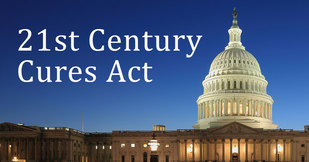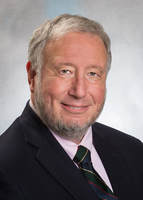|
Navigating a Disorienting Healthcare Landscape | Jerry Avorn, MD, NaRCAD Co-Director  Tags: Evidence-Based Medicine, Health Policy, Jerry Avorn, Medications First, about the grammar. Readers under 65 will be forgiven if they never heard of the daytime television quiz show “Who Do You Trust?” that aired from 1957 to 1963. In it, male contestants were asked if they wanted to answer a question or whether they ‘trusted’ their wife to do so. Concerns by snarky little kids like me that it really should have been “Whom Do You Trust?” did not diminish the show’s popular appeal. Gender issues went totally undiscussed. All grown up now and confronting a changing health care landscape, that still-sometimes-snarky little boy often wonders, as do many of my clinician colleagues, who can be trusted in the world of medical information, especially in relation to prescription drugs. Gone are the simpler times when one had to worry only about whether the drug ads and sales reps were really presenting a balanced picture of all the evidence, which was a hard enough challenge.  We now know that we also have to be concerned about off-label marketing campaigns offering impermissible (and often downright deceptive) statements about efficacy – excesses for which over $16 billion has now been paid to state attorneys general in legal penalties and settlements. As I’ve noted previously, the courts and the FDA are also moving toward much more permissiveness with company claims about efficacy and safety. And in last year’s 21st Century Cures Act, Congress instructed the FDA to be more open to accepting lower standards for drug approval.  Then there are newer sources of information whose trustworthiness is not always clear. More and more, this includes the prescription benefit management (PBM) companies, which seem to be holding on to an ever-larger fraction of the funds flowing through their rich payment pipelines, yet provide little transparency about who gets to keep what rebate dollars, and for what reason. Once billed as cost-savings protectors and comparative effectiveness gurus, the PBMs are under increasing scrutiny, and asked to make their financial data transparent and to clarify just who’s saving what for whom (or is it ‘for who?’).  Nor can we always be sure what angle the payors are playing. Why is Drug A on the formulary, but not its sibling Drug B? It may be an astute purchasing decision, or just the result of a rebate hack. And how much are prior authorization rules and growing co-payments designed to promote evidence-based care, or other less worthy goals? Even clinical guidelines put out by third parties vary from the most rigorous to pretty sketchy.  This leads to one good answer to the ungrammatical question in our title. With these galloping changes in an ever-more marketplace-oriented health care system, every prescriber needs and deserves a smart, superbly informed colleague to rely on to get the best possible syntheses of the clinical evidence – someone who has no other agenda or motivation other than getting the facts right and transmitting them faithfully. Each year, we can take less comfort in counting only on FDA-approved indications, or payor policies, or PBM choices, or advertised claims. The more compromised each of these sources becomes, the more we’ll need ‘honest brokers’ like well-trained and un-conflicted academic detailers, whose only duty is to communicate the fairest evidence summaries as effectively as possible. Like lightweight clothing in an era of global warming, it’s a need that’s only going to increase. Thoughts? Reactions? Sound off below.  Biography. Jerry Avorn, MD, Co-Director, NaRCAD Dr. Avorn is Professor of Medicine at Harvard Medical School and Chief of the Division of Pharmacoepidemiology and Pharmacoeconomics (DoPE) at Brigham & Women's Hospital. A general internist and drug epidemiologist, he pioneered the concept of academic detailing and is recognized internationally as a leading expert on this topic and on optimal medication use. Read more. Comments are closed.
|
Highlighting Best PracticesWe highlight what's working in clinical education through interviews, features, event recaps, and guest blogs, offering clinical educators the chance to share successes and lessons learned from around the country & beyond. Search Archives
|
